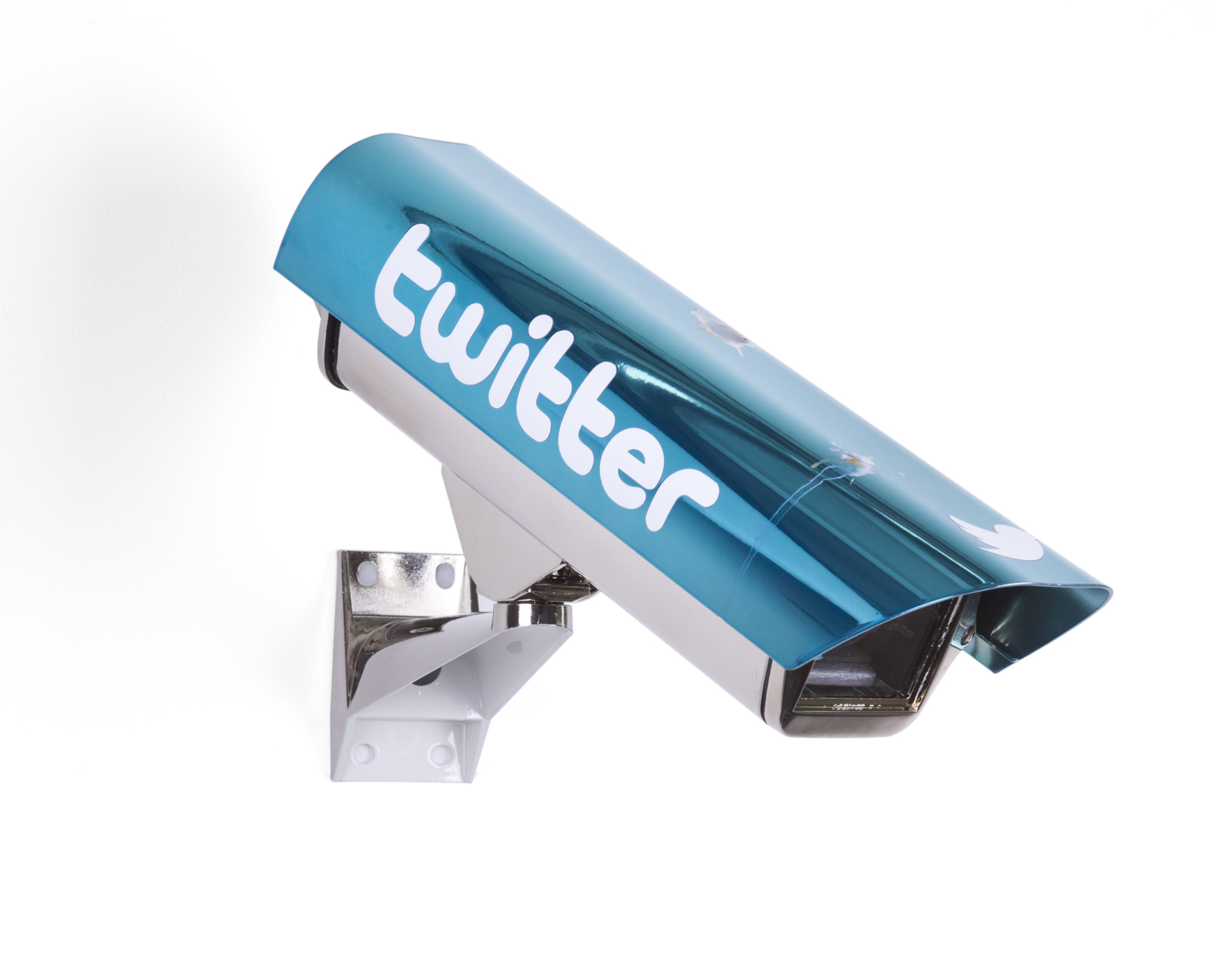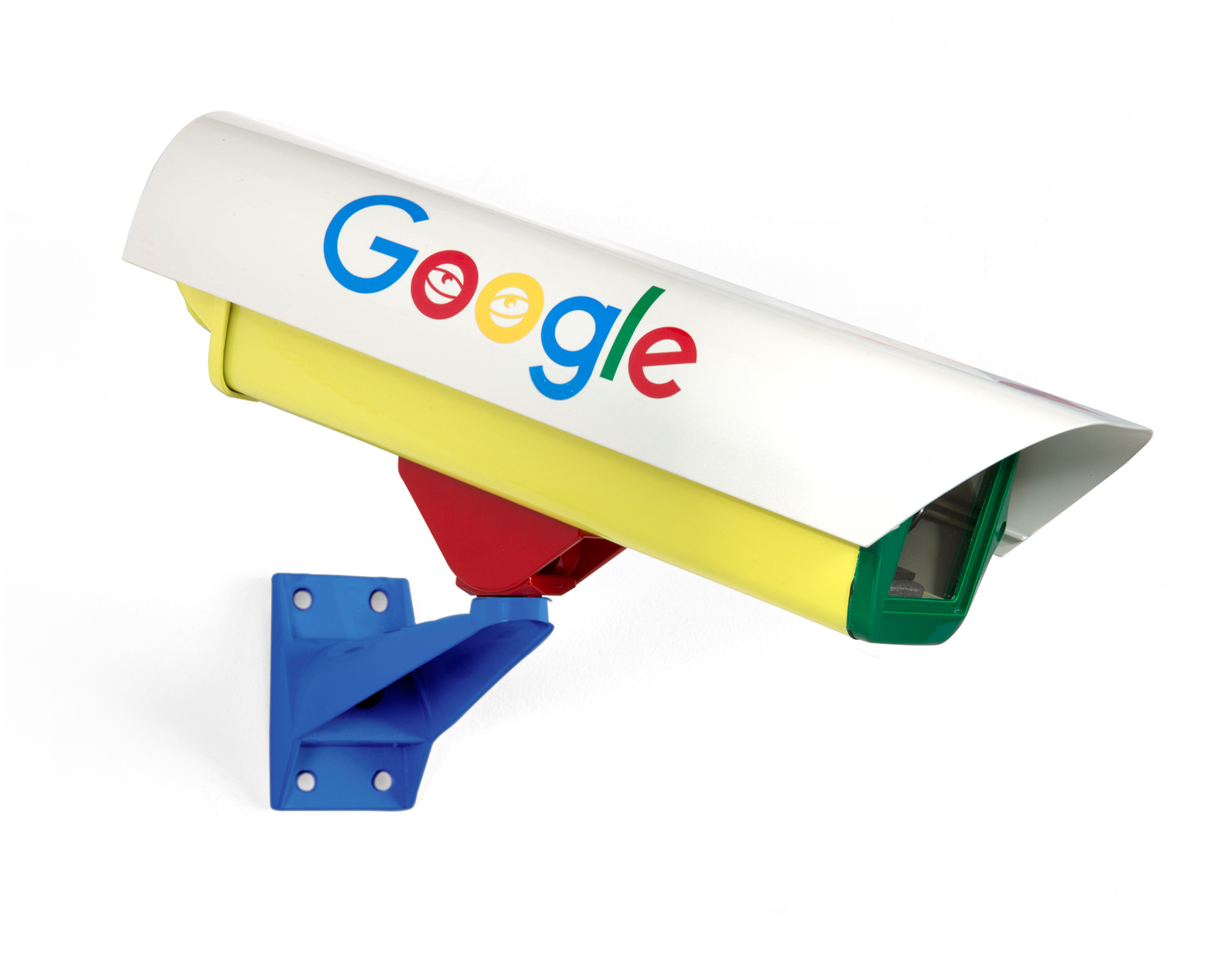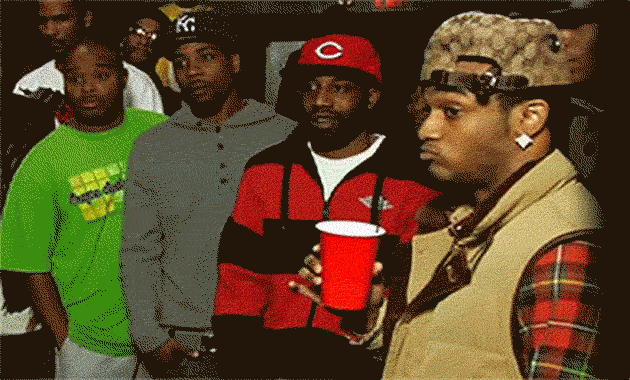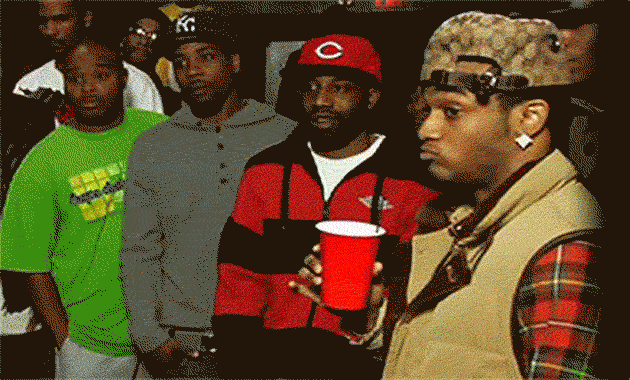The Year That Was and Wasn’t
The past year has been bad—but what made it bad, more or less? To find out, we asked a group of writers and thinkers: What were the most important events of 2016, and what were the least?

Interviews by Hayden Higgins
Tressie McMillan Cottom
His campaign exposed the assumptions that underpin our republic.
Most Important: The election of Donald Trump as President of the United States of America. No matter what one thinks of him, his campaign exposed the assumptions that underpin our republic as far more fragile and venal than many would like to believe. A close second is that I almost met Dolly Parton.
Least Important: At some point there was actually political and cultural currency in talking about “PC” culture run amok on college campuses. Given the 2016 election, I daresay we all look silly for criticizing young people who are trying to learn how to participate in democracy. We need more of that and not less.
Tressie McMillan Cottom is assistant professor of sociology at Virginia Commonwealth University and faculty associate with Harvard University’s Berkman Klein Center for Internet & Society.
Bijan Stephen
2016 was designated as “The International Year of Global Understanding.”
I think we know what the most important event of 2016 was, so let me start with the least important. It wasn’t the Olympics in Rio—though there was some Russian meddling there, too—or the Chainsmokers, though both are certainly competitors. No, the least important thing that happened in 2016 was the year’s designation as “The International Year of Global Understanding,” as decreed by three non-governmental organizations: the International Council for Science (ICSU), the International Social Science Council (ISSC), and the International Council for Philosophy and Human Sciences (CIPSH).
Given that this year saw the global ascendancy of a false, bigoted populism, a spate of horrific terrorist attacks, a frankly disgraceful number of American blacks killed and brutalized by police, and a more general dereliction of moral duty on the part of the world’s leaders, I think I can say for certain that the global understanding the NGOs hoped for has not come to pass. We are more divided and unequal than ever. I’ve only ever known incremental improvement as the dominant domestic condition; I’ve only ever lived in a world where you could believe in The Good in People and more often than not be right. I realize I’ve been wrong my entire life.
Donald Trump will be president on Jan. 20, 2017. That is not the most important thing that’s happened this year. What was most important: In 2016 we learned the will of the people is to destroy and hate, and the ones in power have rolled onto their backs and let Trump nuzzle their yellow bellies.
Bijan Stephen is a culture correspondent on VICE News Tonight on HBO.
Dara Lind
The thing about norms is that by the time you need to defend them they’ve already failed.
Most Important: 2016 was the year that people who wouldn’t usually touch theory with a 10-foot pole started explicitly talking about “norms” as a good thing.
For 50 years, social norms have been treated as an engine of conformity—bad for diversity, bad for the authentic self. But norms are also what restrains raw power: what makes it not OK to wear “TRUMP THAT BITCH” shirts in public or go on racist tirades at cashiers.
The new culture wars came into formation in 2016: Politics, celebrity culture, and candid-camera virality all divided along the same battle lines (victims of “PC” oppression versus victims of centuries of entrenched power). Suddenly, people who’d been horrified in 2015 by “public shaming” realized the dangers of untrammelled shamelessness to any collective life: social media, parking lots, democracy.
But the thing about norms, as the theorists can tell you, is that by the time you need to explicitly defend them they’ve already failed.
Least Important: The incessant, often ableist—and always with less evidence than people who “care about facts” would normally accept—attempts to divine and diagnose the character of Donald J. Trump.
Dara Lind covers criminal justice and immigration, among other things, as a reporter for Vox.
Tom Scocca
The event itself was an unhinged billionaire’s secret conspiracy to destroy us.
Most Important: Fate delivered my personal, local share of the vast and terrible central event of 2016 early, in March, when six citizens of the state of Florida delivered from their jury box the verdict that, by publishing nine low-quality seconds of video of Hulk Hogan having sex, my employer, Gawker, had committed an outrage worth $141 million in damages. We had expected the trial, a vicious show trial run by a dumb and hostile judge, to go badly, but we hadn’t imagined how badly, nor had we yet grasped that the event itself was only the surface manifestation of an unhinged billionaire’s secret conspiracy to destroy us. It would be months before that became clear, and before we realized that it worked, that we had been destroyed, and that the laws and principles we thought would save us were unequal to the job. But the moment the verdict came down was the moment I realized that Donald Trump could become president.
Least Important: Meanwhile, before 2016, it was understood that presidential debates were of incomparable importance. It was here, under pressure and before tens of millions of eyes, that the candidates would be revealed for who they were. And so we got Donald Trump, a jabbering, incoherent goon, lurching around the stage as Hillary Clinton cooly made her case for being the nation’s chief executive. In the third debate, in particular, there came the moment for discussing abortion, and we saw a presidential candidate give a surefooted, eloquent, unflinching endorsement of women’s autonomy. It seemed to be a glimpse of a better, saner, more just future. Not even the people whose whole job was to lie and cover up for Donald Trump had the heart to claim that he’d done anything but lose all three rounds. And it didn’t matter.
Tom Scocca is an editor for the Gizmodo Media Special Projects Desk, the weather reviewer for The Awl, and the author of Beijing Welcomes You.

Alana Massey
Millions are now susceptible to treatment-resistant bacteria.
Most Important: We hit the “superbug” tipping point when the MCR-1 gene appeared on the E. coli bacteria of an American patient this year. The presence of MCR-1 makes bacteria resistant to the antibiotic colistin, the absolute last-resort, open-only-in-case-of-imminent-death antibiotic. Our over-reliance on antibiotics and our failure to treat infections with full courses of antibiotics left residue of infection behind, and it learned from our overzealousness and laziness and developed a resistance that frankly, the American Left should learn from if we’re going to accomplish anything. Millions are now susceptible to treatment-resistant bacteria and the death count is rising, and doing so far more quietly than it should. It is a cliché and a lie when humans say it, but for bacteria “what doesn’t kill you makes you stronger” has been a battle cry. We should have started listening earlier.
Least Important: The hollow and labored public apologies of white people to people of color, of men to women, of cis to trans people, etc., when a great injustice occurred. It was a way of relieving ourselves of culpability instead of doing the hard and uncomfortable work of telling members of our own groups that our presence is not a safe space for their violence, hatred, and resentment. A critical mass of people using their power that way could make the whole country an unsafe space for such evil.
Alana Massey is a writer covering identity, culture, technology, and relationships. Her essay collection All the Lives I Want is forthcoming in February 2017.
Sarah Zhang
Build up. Tear down. Double dip in the pool of web traffic.
Most Important: While we’re mourning the death of a common objective reality, let’s drive a stake through the heart of things that only look objective. Namely, algorithms. It was an algorithm that told the Clinton campaign they were sitting pretty in Michigan, Wisconsin, and Pennsylvania. It was an algorithm that spread fake news across the echo chambers of Facebook. 2016 showed us the danger of putting blind faith in algorithms—as if algorithms are objective and neutral and not reflective of the biases of the people who fed them data, sometimes garbage data.
Least Important: Someone did an amusing thing once (put on a Chewbacca mask, worn a red sweater on national TV) and then they said something or it came out that they once said something controversial. Build up. Tear down. Double dip in the pool of web traffic.
Sarah Zhang is a staff writer for the Atlantic.
Tarin Towers
While we were saying “peace and safety,” fascism arrived suddenly.
Most Important: As part of his dark quest to live forever, and in order to bring about the Singularity, humanoid capitalist overlord and “proud gay” Peter Thiel bankrolled the triumph of capital over speech, using as his tools the State of Florida and a television personality; the outcome hinged in part on a bad joke about sexual assault, and Thiel’s “progressive” Silicon Valley peers refused to censure him. (Software people tend to think of collaboration as a component of productivity.) How can such an unlikely scenario describe both the end of Gawker and the presidential election? While we were saying “peace and safety,” fascism arrived suddenly, like a Thiel in the night.
Least Important: I don’t know if you heard, but the Golden State Warriors blew a 3-1 lead in the NBA Finals. In hindsight this, like everything else, is a metaphor for the general election: Everyone thought the Dubs, having overcome decades of bottom-rung slog—and somehow maintaining their underdog status even though they were dynastic anointees funded by Silicon Valley—would win the championship by virtue of ingenuity and grit. Must politics ruin everything, even sports? The Dubs still set plenty of records, most of which were not for stars, but for teamwork. In the current season, improbably, Strength in Numbers is still a balm and a strategy.
Tarin Towers also writes about witchcraft, guns, and housing.
Meagan Day
Who were all these people who wanted an obscure, elderly democratic socialist for president?
Most Important: Bernie Sanders. On the most obvious level, the election of Donald Trump is more important than anything else that happened in 2016. That’s especially true if you’re thinking short term. If you’re thinking long term, though, you have to consider the surprising success of the Bernie Sanders campaign. Who were all these people who wanted an obscure, elderly democratic socialist for president? Where did all that populist energy come from? These are actually complicated and worthy questions: The answer is not Bernie Bros or naive millennials. Figuring out where the energy came from, and how to harness it again in four years, is the key to stopping Trump’s reelection.
Least Important: The Dallas Police shooting. The killing of five Dallas police officers on July 8 promised to fundamentally undermine Black Lives Matter—and then, remarkably, it didn’t. I was at a BLM protest the night it happened. Protesters in Oakland were blocking the highway, and we all got the news in a wave. That night I tweeted: “I feel so depressed at the thought of waking up tomorrow in a world where the Dallas police shooting has happened. How much work undone?” But perhaps due to the widening polarization of American political opinion, exacerbated by the filter bubble, the event had negligible effect on BLM or the conversation around policing. BLM supporters remained supporters, and detractors remained detractors.
Meagan Day is a journalist based in the Bay Area. She’s the author of the nonfiction book Maximum Sunlight (2016), and is currently an editorial fellow at Mother Jones.

Jeremy Keehn
The nearly three million ballots are the more meaningful harbinger of the long-term future.
Most Important: The most powerful country on Earth electing a totem of its crassest self strikes me as pretty important. But I cling, with increasing desperation every time a presidential appointee is announced, to the belief that the nearly three million ballots by which that totem lost the popular vote are the more meaningful harbinger of the long-term future.
Least Important: Post-Nov. 8, it’s tempting to pick climate change, gender and racial equality, ethical government, sound economic policy, free and fair elections, sensible industry regulation, or fact-based journalism. But let’s fight the real enemy: the collective squandering of years of human attention on Marco Rubio’s boots.
Jeremy Keehn is a features editor of Bloomberg Businessweek.
Zahira Kelly
This was the second presidential election I ever voted in and both discarded the popular vote.
Most Important: It’s hard to choose but these are the top contenders.
PRINCE IS DEAD. HOE MY GOD. *HEAVES*
The DAPL protest. This is right after some had the audacity to say US settler colonialism is a completed project. Native Americans are still here fighting.
Shirley Caesar and the YouNameIt remix by @remixgodsuede deeply affected my life. The delicious black food. The church style vibrato yell. The bottom-heavy trap bass. It will be a Thanksgiving fave forever more.
We have a Cheeto dust internet troll for president. What a time to be alive. Trump’s win caused Sharon Jones to suffer a stroke and we lost her magic and grace soon after, as if him winning wasn’t tragic enough.
The outpouring of disgusting emboldened racist hate crimes and harassment leveled against school kids and adults of color post Trump’s win.
The fact this was the second presidential election I ever voted in and both discarded the popular vote. What is democracy?
This year was one low blow after another. If it was a school bully in a Karate Kid movie, this year would’ve started out publicly airing the humiliating childhood secrets you told ‘em and ended mentioning your mom’s private parts after kicking you in yours. It was just BAD. There was no getting up after your ankle got busted like Daniel-San, either. 2016 just fucked us up. We are still laying on the ground agonizing in the fetal position, spitting blood. It hasn’t stopped hitting us.
Least Important: The whole thing. Pour gasoline on that bitch and kill it with fuckin’ fire.
Zahira Kelly is a sociocultural critic/artist whose focus is analyzing and dismantling dominant power structure from a Latinegra anticolonial feminist perspective. She likes machetes and gold sequins.
Maria Bustillos
A principled lawmaker brought criminal plutocrats to account.
Most Important: The most important event of 2016 came Sept. 20, when Sen. Elizabeth Warren (D-MA) interrogated Wells Fargo Chairman and CEO John Stumpf—or rather, roasted him alive—in a Senate Banking Committee hearing. Wells Fargo had been fleecing its customers for years by opening millions of accounts in their names without permission.
Warren: “Have you returned one nickel of the money you earned while this scam was going on?”
Stumpf: “The Board will—”
Warren: “I’ll take that as a no, then.”
A principled lawmaker bringing criminal plutocrats to account!? Who knew there could be such a thing. Let’s keep alive the wild hope that this was the beginning of something, and not the end! (Too bad it didn’t happen in 2009, or we’d likely be looking at a very different 2017.)
“You should resign … and you should be criminally investigated!” the senator fumed, making this citizen’s heart soar. And watching Stumpf make the slow, stupefied realization that he and his thieving bank were finally going to be made to pay for ripping people off is a balm in these troubled times, and I recommend it highly. Better still, he resigned weeks later, $41 million poorer.
Least Important: The least important thing that happened is that a load of mortifyingly self-infatuated singers and television stars embarrassed themselves and the nation all to hell by singing about Hillary Clinton and pantsuits. She, and they, cannot be forgotten too soon.
Maria Bustillos is a Los Angeles-based journalist and critic.

Clint Smith
We have more clarity than ever about the reality we are facing.
Most Important: More people are realizing America is not who we have pretended to be for so long. We’ve been disabused of the notion that the criminal justice system will provide any semblance of justice when police kill unarmed black citizens, we’ve been firmly disabused of the idea that a presidential candidate who represented an existential threat to the lives of countless people would prevent the majority of white men and women from supporting him, and we’ve been disabused of the idea that, for some, empirical evidence and proof is enough to shift misguided and dangerous ideologies. Amid all of this, the good thing, I think, is that we have more clarity than ever about the reality we are facing. My hope is that we will confront it honestly, with nuance and urgency.
Least Important: Ryan Lochte and anybody who didn’t like the Hamilton soundtrack. Y’all are trash.
Clint Smith is a writer, poet, teacher, and Ph.D. candidate in sociology at Harvard University.
Eve Peyser
It feels cold to collect these tragedies into a little list.
Most Important: Evil won this year—and it did so on a global scale. Each day of 2016 ushered in a new calamity—the violence in Syria, everything Trump, Brexit, Duterte’s violent drug war, white nationalism and police violence in the US, the powers that be denying the threat of climate change. It feels cold to collect these tragedies into a little list; they nevertheless serve as a reminder that unapologetic brutality got you very far in 2016. Trump’s unexpected rise to power represents this triumph of the worst and gaudiest villains most obviously. He behaved like a psychotic moron, and he didn’t win in spite of those qualities. Uppity establishment liberalism and smarm were not effective tools for fighting the Right’s ruthless ideology, one that, in 2016, completely did away with politeness and any facade of compassion. 2016 sucked, and the world is worse off now than it was a year ago. Then again, every year sucks.
Least Important: The frog memes. All of them.
Eve Peyser is a writer and comedian who is currently the night editor at Gizmodo and has been published in Esquire, GQ, Gawker, The New Inquiry, and New York magazine.
Ted Scheinman
We’re now fighting a battle against the odds, with our own president tying our hands.
Most Important: The oceans are boiling and the incoming president is fine with it.
2016 marked the warmest year in the recorded history of Earth. Arctic sea ice is disappearing, coral is losing algae at record rates worldwide, and have you seen the latest readings from western Antarctica? There were some diplomatic victories, as world leaders met in Bonn, Germany; Kigali, Rwanda (where they quietly pushed through a deal to cut hydrofluorocarbons by 90 percent); and finally Marrakech, Morocco, for COP22, which began right before a blithering climate-change denier won the American presidential election. In the face of historic risk—and what will go down as historic obstinacy on the part of the GOP—local movements in America will become doubly important, as will private-sector solutions, but right now that feels like cold comfort; no degree of rose-tint can brighten the knowledge that we’re now fighting a battle against the odds, with our own president tying our hands.
Least Important: The bad and false idea that traditional journalistic civility is desirable under a President Trump, or commensurate to the bullshit his administration is already dropping on the country. There are plenty of people in America who are taking conspicuous steps to accommodate or appease Trump and his acolytes, especially in soft-pedaling their critique of white identity politics. HERE’S THE THING: When a candidate wins by systematically undermining or threatening to destroy the basic institutions of his own country, a free press and loyal opposition will perish if they fail to adapt. By all means, let’s hold reporters to a higher standard than the incoming president (it would hardly be possible not to)—but this is no time for euphemism. The weasels might complain if you’re not polite, but they’ll destroy you if you are.
Ted Scheinman is a senior editor at Pacific Standard magazine.
Lucia Graves
We said it can’t happen here—until, on Nov. 8, it did.
Most Important: This was the year of anti-everything politics. On the left and the right there was nothing more winning than the desire to burn everything down. We saw this play out in our primaries, but also around the world in France, Denmark, Germany, and more. It was “Austria First,” then “Britain First,” then “Make America Great Again.” Still we said it can’t happen here—until, on Nov. 8, it did.
Least Important: Hillary Clinton’s damn emails, and every other phony Clinton scandal. That weeks after the election the House Benghazi committee formally disbanded, having spent two and a half years and $7.8 million to find Clinton guilty of no wrongdoing, tells you everything you need to know.
Lucia Graves is a columnist and features writer at the Guardian and other publications.

Mayukh Sen
I hope the leftist resistance in the coming years renders this strain of liberalism obsolete.
Most Important: Was 2:30 a.m. EST on Nov. 9 the moment when most woke white media folk finally got their asses handed to them? Yes, I think so. These are the same people who could not stomach the faintest criticism of a Democratic candidate responsible for so much suffering at home and abroad; who erased genuinely leftist voices (leftists of color, female leftists, queer leftists) while gunning for “more than a president” St. Hillary; who shed corny tears while adorning white supremacist Susanna Bee Antoine’s gravestone with “I Voted” stickers. I hope the leftist resistance in the coming years renders this cancerous, hubristic strain of liberalism obsolete. (My runner-up is people realizing that Jennifer Lawrence is bad.)
Least Important: Every thirsty 22-year-old who has written for some random publication once upon a time and begged for a blue checkmark so they could enter the pointless yearbook known as “media Twitter.” Twitter opening the floodgates for people to become verified just sucks. Being verified is the least cool thing anyone could do. Literally no one cares. The world is bigger than Twitter dot com. Please walk outside. I hope I am never verified.
Mayukh Sen is a staff writer covering culture at Food52.
Sam Escobar
More people are recognizing that heightened visibility of LGBTQ+ folks hasn’t translated to equality.
Most Important: The Pulse nightclub shooting in June finally woke a lot of people up to the fact that the Supreme Court’s 2015 decision to legalize same-sex marriage doesn’t mean the country is remotely free of transphobia, homophobia, and overall prejudice against LGBTQ+ people. Outside the queer community, there’s this notion that this discrimination faded out some 10 or 15 years after Stonewall or, I don’t know, when Macklemore started officiating queer couples’ weddings during his concerts.
In reality, 26 trans people have been reported murdered this year, and trans women of color experience disproportionate levels of systemic oppression compared to most Americans. While there are still plenty of people on all political sides who genuinely believe that bathroom rights are frivolous and “identity politics” are just a distraction, more and more people are recognizing that heightened visibility of LGBTQ+ folks hasn’t translated to equality.
Least Important: The increasingly sluggish, repetitive, and often unwarranted snark and cynicism on social media by people in privileged positions with large platforms. To some extent, it’s a reasonable response to an exhaustingly bleak news cycle. On the other hand, tweeting political memes is the laziest form of activism. ¯\_(ツ)_/¯
Sam Escobar is the senior commerce editor at Bustle, and has written for Esquire, Cosmopolitan, Brooklyn Magazine, and the New York Observer.
Aaron Edwards
Want to know what’s important? My untreated sleep apnea is important.
Most/Least Important: Whenever something happens that’s deemed “unimportant,” there’s a rush to call it a “distraction.” That dreaded addendum to really drive it into the mud. Kanye makes a tweet. Donald Trump makes a tweet. Your auntie makes a tweet. Many things are distractions. But from what? Important things? Want to know what’s important? My untreated sleep apnea is important. The snoring caused by my untreated sleep apnea is important. The mouse I trapped in my apartment last month is dead, but important. In the abstract, the most important event of 2016 was whatever moment you remembered that the machinations of our daily lives—real and imagined—are the strongest motivators to go from X to Y, regular white person to harmful woke white person, disengaged swing state resident to demagogue supporter. For many, that was at around 11 p.m. on Nov. 8. That mouse in my apartment was motivated by gluttonous instinct and fear. As a reminder, it is now dead.
Aaron Edwards works across editorial and tech at The Outline, a new website founded by Joshua Topolsky. He’s written for and built products at BuzzFeed News, NBC, and the New York Times.
André Natta
The Fourth Estate will face its toughest challenge yet.
Most Important: The 2016 presidential election. More specifically, its aftermath. It’s exposed faults throughout our society, including gaps in how we do journalism. Those gaps have led to a distrust that may prove costly in the coming year as it looks as though the Fourth Estate will face its toughest challenge yet. It should lead to a much-needed return to meaningful collaboration between local and national news organizations. Hopefully.
The election also reinforced existing silos and exposed wrongs long visible to people of color and others seen as “less than”—and it should scare us. Our acknowledgement of this inability to communicate—and our inability to find a way to work past it—will make 2017 quite challenging.
Least Important: Yes, it annoys me to no end, but I’m happy we’ve stopped obsessing over how badly folks pretend to drink coffee from mugs and paper cups in the Gilmore Girls revival. (Honorable mention: OK, who really remembers anything about Coldplay’s halftime performance at Super Bowl 50?)
André Natta is a columnist for Poynter and digital media producer for WBHM-FM in Birmingham, Ala.

Muna Mire
We still have hope.
Most Important: It feels insincere in some ways to make the claim that anything other than Trump’s election to the highest possible office was the most important event of the year. But I also want to honor the many beautiful moments of this year, the moments when we won. In my mind, there’s a tie between the victory at Standing Rock and the defeat of the Dakota Access Pipeline, slated to run through sacred Sioux lands, and the nationwide prison strike in which incarcerated Americans housed in 40 facilities across 24 states bucked their cages and organized for humane treatment. It’s important to me to remember that this year—a year in which I have suffered profound personal loss (my younger brother passed away)—we still have hope.
Least Important: The Pokémon GO mini craze, which I definitely did not participate in. The whole thing was a weird attempt at mining millennial nostalgia for profit propagated by a company with direct ties to the intelligence community. They promised to disclose your personal information (yours or your child’s) to both law enforcement and government agencies as well as “private parties.” People were walking into traffic for that? Someone was literally mugged while playing! I still don’t follow but I’m glad it was so temporary.
Muna Mire is a writer and fact-checker.
Josh Dzieza
Things can always get worse.
Most Important: This year was a grotesque cartoon in a thousand ways but just about all of them were somehow related to the election of Donald Trump, or to fit Brexit in there, a wave of xenophobic populism. It turned out sclerotic democracy doesn’t even have the merit of being stable, that the networks that enable progressive activism also connect anime fascists, and that statistical models can be both comfortingly precise and humiliatingly inaccurate. It was a bad year, and one of its lessons is that things can always get worse.
Least Important: Amidst the wreckage I took some cold comfort in the farcical downfall of Chris Christie. Out-bullied by Trump, he embraced the role of feckless toady, only to be publicly spurned for the vice-presidential spot. No one thought his consolation prize leading the White House transition would ever be realized, and then when it suddenly was, he was kicked aside by Jared Kushner, revenge for throwing his father in jail. All unfolding against the backdrop of the Bridgegate trial, it was a story of inept villainy and backfiring schemes, and I hope someone is writing a play about it.
Josh Dzieza is an editor at The Verge.
Hanif Willis-Abdurraqib
Not just black art “in response to,” either. Black art that stood firm.
Most Important: The thing that sustained me most during this wretched and impossible year was seeing so many black women, and so many people of color really controlling their own narratives in creative spaces. I’m not of the belief that this is new, but to see so many eyes turned toward it this year was refreshing. Of course, on the surface, there were large-scale projects like Beyoncé’s Lemonade or Chance’s Coloring Book. But there were also books like Brit Bennett’s The Mothers and Yaa Gyasi’s Homegoing that entered the cultural conversation in refreshing ways. I’m not sold on the idea that art is going to get better under this nightmare of an administration, especially not for marginalized artists, who will be most impacted by its policies. But I think the way that people react to existing art and artists will have to shift. The spotlight is starting to shift, I think. Not quickly enough for my liking, but so much black art was centered this year and it made me feel good. Not just black art “in response to,” either. Black art that stood firm, meditating on the vastness of the black experience. It was a mighty well for me to return to, and it was often full.
Least Important: I understand how this runs counter to my glowing statements above about black art, but…Frank Ocean wasting everyone’s damn time building a staircase when he could’ve just dropped the album.
Hanif Willis-Abdurraqib is a poet and cultural critic from Columbus, Ohio. He is a columnist at MTV News, and his first full-length collection of poetry, The Crown Ain’t Worth Much, was released by Button Poetry in 2016.
Craig Mod
Many of us realized we had lost control of our attention.
Most Important: Did anything in the world exist outside of the election this year? If it did, I couldn’t hear it. Perhaps the most important thing to happen was really subtle: Many of us realized we had lost control of our attention. And more specifically: We saw social media become weaponized in direct leverage of this.
As the results came in, and the deep sadness of the day-after set in, many of us disconnected. The indignation machines that were our social media streams became too much. And in that disconnection, dare I say some of us once again found sanity. Coming to another realization: If we’re to be useful and active citizens fighting for what we feel right, perhaps some distance from the machines that helped create our current situation is necessary. 2016: The year social media wasn’t just vain, but deadly.
On the flip side, social media streams are the only bastion of hope and community for many who feel disenfranchised, targeted, scared, angry, frustrated. They’re the prime modes of mobilizing these communities, helping give voice to these communities. Figuring out how to balance our inventions—allowing underrepresented communities to flourish but keeping misinformation in check, all the while maintaining free speech—will be one of the biggest challenges for 2017.
Least Important: Two words. Headphone. Jacks.
Craig Mod is a writer, designer, and publisher.

Clio Chang
A lot of bad things happened this year.
Most Important: Antonin Scalia passed away and was found dead in his bedroom at a Texas ranch-resort with a pillow on top of his face. Donald Trump calls it a “pretty unusual place to find a pillow.” Senate Republicans refuse even to hold hearings for the liberal-ish limp noodle, Merrick Garland. Now Donald Trump and Mike Pence, whose hair is made of plastic, have won the election and will step into office in just one short month. A lot of bad things happened this year, but this was definitely one of the worst.
Least Important: Brang / Elina. Hiddle / Swift. “Candid” pictures of Tom Hiddleston carrying Taylor Swift around the beach like she was his sickly nan.
Clio Chang is a reporter at The New Republic.
Malcolm Harris
Millions of Americans want to replace the systems we have with something more just and fair.
Most Important Overrated: The Bernie Sanders primary campaign was always doomed to fail. By running within the capitalist Democratic Party, Sanders gave us a good (and expensive) demonstration of why we don’t have leftism in American politics. That millions of Americans want to replace the systems we have with something more just and fair shouldn’t be any kind of surprise, but that revelation (along with the shocking loss in the general) don’t seem to be adding up to change. Hundreds of millions of dollars later and it looks like Keith Ellison won’t be Chair and the Democrats will remain the Democrats.
Least Important Underrated: Colin Kaepernick’s anthem protest started as a rebellious act of personal conscience, which is part of why it took off. But once it got going, the QB stepped up and took responsibility for his leadership by giving thoughtful post-game talks, organizing the young people he inspired, and debuting a T-shirt collection that has become the most radical voice in mainstream America. He dissed the flag in NFL stadiums, defended Castro (premortem) in Miami, and even won back the Niners starting job. Kaepernick gripped the third rail with both hands and lives to tell the tale.
Malcolm Harris is a columnist at Pacific Standard and a freelance writer based in Philadelphia.
Laura Olin
It was a Thursday.
Most Important: On March 3, 2016, average temperatures in the northern hemisphere hit two degrees Celsius above the preindustrial level for the first time, long considered the threshold above which climate change could become dangerous to humanity. It was a Thursday.
Least Important: Pretty much everything else.
Laura Olin is a digital strategist for progressive causes and runs an email list called Everything Changes for The Awl.
Kristen Hare
We need journalists watching what’s going on, asking questions that people don’t want answered.
Most Important: From a journalist’s perspective, I’m going to go with David Fahrenthold’s work. The Washington Post reporter combined tireless reporting with smart social media skills and was rewarded with big scoops that offered revealing work. The press went through a beating while covering Donald Trump’s candidacy, his win and, now, his presidential transition. And yes, the anti-journalism push in the country is a strong one right now. But we need journalists watching what’s going on, asking questions that people don’t want answered and reporting with clear eyes. It’s not now, and it’s really never been, a popular profession. But Fahrenthold’s offering a great example of how to combine the oldest and the newest tools. We need them both more than ever.
Least Important: The Gilmore Girls Netflix reunion. I haven’t finished it yet, but I’ve loved and hated it so far as much as a lot of people have. I think that’s because, at least personally, I see the world in a very different way than I did when I first became enchanted with the lives of the people in Stars Hollow. So much has happened in the real world since that show wrapped. And now that world seems very white, very upper-middle class, very disconnected with the real issues of this world. Maybe the disconnectedness was what I liked about it then. Now I want to see shows with people figuring out how to live in our world, not escaping from it in a cute town with no real problems.
Kristen Hare is an online reporter at Poynter.

Alicia Eler
The Electoral College was set up to ensure the free North would not outnumber the slaveholding South.
Most Important: Hillary Clinton won the popular vote by 2.9 million, more votes than any other losing presidential candidate in US history, but still lost the Electoral College vote to Donald J. Trump. Again the question was raised: Isn’t it time to scrap the Electoral College, a system set up during slave times to ensure that the free North would not outnumber the slaveholding South in general elections? Sen. Barbara Boxer of California filed a bill that aims to do just that.
Least Important: Kanye saying he would have voted for Trump if he’d bothered to vote. West released his pro-Trump political rant during a concert in Sacramento, particularly fawning over what he referred to as Trump’s “method of communication,” which he called “very futuristic.” Kanye tweets in a similar way to Trump, as we recall from the gross, inane “Bill Cosby innocent!!!!!” tweet. Shortly after declaring his commitment to Trump, Kanye had a breakdown and was hospitalized. Then he canceled the rest of his Saint Pablo tour.
Alicia Eler is a culture journalist based in Los Angeles. A contributor to New York magazine, the Guardian, VICE, LA Weekly, Hyperallergic, Art21, and Artforum, she is currently working on her first book, The Selfie Generation (Skyhorse).
Rosemary Donahue
Things are never as good when you revisit them as you remember.
Most Important: Finally, people are starting to wake up and see that if one of us is oppressed, we all are. It’s shitty that this had to happen with a catalyst (i.e., the election), and that some cis, heterosexual, able-bodied white people had to feel they were actually oppressed to see the oppression of the LGBTQIA community, people of color, disabled folks, and other marginalized people as valid and real, but people are finally waking up and using this knowledge in actionable ways—even though we have an even bigger mountain to climb, now. Plus, Gen Z is promising as hell.
Least Important: Reboots of television shows. Stop doing them. Nostalgia is great and all, but things are never as good when you revisit them as you remember—except food.
Rosemary Donahue is an editor for Brit + Co and a writer all over.
Jamie Lauren Keiles
Writers and pundits confidently misassigning the values of most and least important.
Oh gosh, I don’t even want to reflect on the year. It feels so disgusting right now. Much of what went wrong had to do with writers and pundits confidently misassigning the values of most and least important. I can’t imagine properly trusting my own analytical brain until at least 2018.
Jamie Lauren Keiles is a writer in Los Angeles.
Kyle Chayka
The image of success seems to precede its reality.
Most Important: 2016 was a year in which we mistook form for content and prized packaging so much that we ignored what was inside it. We always knew branding was important, but the extent to which the projection of an identity has eroded the validity of facts about that identity and their consequences is a harrowing surprise. This is as true of tech companies like Uber as it is of the presidential election, won by virtue of a thin gilt veneer. And yet our dependence is only increasing. As stable jobs disappear and automation eats the rest, your brand, in the form of an aggregate star rating or a volume of Twitter or Instagram followers, is the only thing left to leverage. The image of success seems to precede its reality.
Least Important: The future is good for so many things. You can make a publication about it. You can start a company that promises to create it. You can hope it will be better or worry it will be worse. In 2017 we will attempt to realize that there was never any future, that utopianism is a pointless fetish, and all that exists is the morass of the present, which we must grapple with day by day in order to effect change that can only ever be incremental.
Kyle Chayka is a freelance writer.
Alana Levinson
Most Important:

Least Important:

Alana Levinson is a writer and editor.
